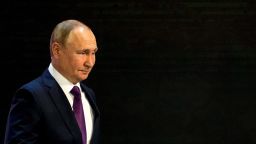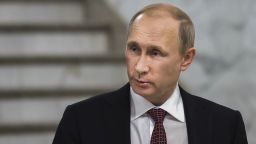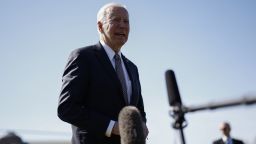Italian Foreign Minister?Luigi?Di?Maio?speaks during a news conference following talks with his Russian counterpart Sergei Lavrov in Moscow, Russia, on February 17.
(Shamil Zhumatov/Reuters)
More countries continue to expel Russian diplomats as part of the fallout from Moscow’s invasion of Ukraine.
Here’s a list of countries and the actions they have taken:
Italy has expelled 30 Russian diplomats for “national security” reasons, Italian Foreign Minister Luigi Di Maio?said in?Berlin on Tuesday.?
The decision “taken in agreement with other European and Atlantic partners” was needed for “reasons related to our national security, in the context of the current crisis resulting from the unjustified aggression against Ukraine by the Russian Federation,”?Di Maio said.?
“Italy is available to act as a guarantor of security and peace in Ukraine and we will do whatever it takes to carry out this work.”
Spain is expelling “about 25 Russian diplomats and embassy staff who represent a threat to the security interests of our country,” Spanish Foreign Minister Jose Manuel Albares said Tuesday at news conference in Madrid.?
The expulsions also “come after the terrible actions in recent days in Ukraine, especially in Bucha,” Albares said, in reference to images of Ukrainian civilians killed in that town at close range.?
Spain’s Foreign Ministry press office said those expelled will have a few days to prepare for their departure. The list does not include the Russian ambassador to Spain, the press office added.?
The Minister of Foreign Affairs, José Manuel Albares, appears after the meeting of the Council of Ministers, at La Moncloa, on April 5 in Madrid, Spain.
(Gustavo Valiente/Europa Press/AP)
Sweden has expelled three Russian diplomats?for carrying out intelligence operations in the country?in?breach?of?diplomatic relations, Swedish Foreign Minister Ann Linde said in a news conference in Stockholm on Tuesday, condemning “war crimes committed by Russia” in reference to scenes from Bucha.
She added that Sweden wants “to see a fifth sanction package as soon as possible that goes further when it comes to Russian exports of fossil fuels.”?
Latvia announced Tuesday that it was closing two Russian consulates and expelling staff over Russia’s invasion of Ukraine, the Latvian Ministry of Foreign Affairs said Tuesday.?The Russian ambassador to Latvia was told that the consulates in the Latvian cities of Daugavpils and Liepāja must close and their staff leave the country by the end of the month, the foreign ministry added.
“The decision was taken in solidarity with Ukraine in its fight against the unprovoked and unjustified military aggression and war started by Russia,” a ministry statement read.
Estonia?has said?it will shut down both Russian consulates in the country and expel 14 staff in light of the atrocities revealed to have been committed by Russian forces against Ukrainian civilians.?
Seven of the employees have diplomatic status, according to a statement from Estonia’s Ministry of Foreign Affairs. The former Soviet state is the latest European country to participate in Tuesday’s mass expulsion of Russian diplomats.?
Consulates in Narva and Tartu will close and staff have until April 30 to leave, the Russian ambassador was told, according to the Estonian Foreign Ministry. Russia still has an embassy operating in Estonia’s capital city of Tallinn.?
Several European countries – including France, Germany, Denmark and the Netherlands – also decided to expel Russian diplomats. Denmark said Tuesday it has expelled 15 alleged Russian intelligence officers it claims were working undercover as diplomats.
Russia’s response: Russia on Tuesday warned the European Union of “adequate reciprocal measures” after the bloc designated 19 Russian diplomats to the European Union as “persona non grata” over its invasion of Ukraine, the Permanent Mission of the Russian Federation to the EU said in a statement.??
“This openly unfriendly — moreover, hostile and, most importantly, completely groundless step continues the European Union’s policy of dismantling the partnership between Russia and the EU, which until recently both sides proudly called strategic,” the statement said.??
The expulsion of Russian diplomats is a “short-sighted step” that will “inevitably lead to retaliatory steps,” the Kremlin’s spokesperson, Dmitry Peskov, told reporters on a regular conference call on Tuesday.
CNN’s Li Lian Ahlskog Hou, Benjamin Brown, Amy Cassidy and Al Goodman contributed reporting to this post.
























































